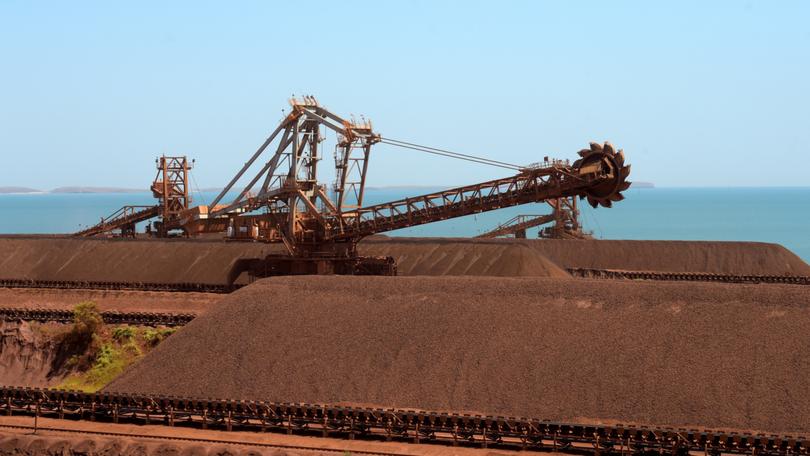Trade surplus: Australia posts lowest balance since 2018 in sign export boom is slowing
Sliding exports of coal and iron ore have pushed Australia’s trade surplus to the lowest level since 2018.

Sliding exports of coal and iron ore have pushed Australia’s trade surplus to the lowest level since 2018.
The balance — measuring whether the country sells or buys more from overseas — ran at $3.3 billion for the three months to September, halving on the previous period.
Production disruptions hit LNG sales and iron ore prices sunk, the Australian Bureau of Statistics said on Tuesday.
Sign up to The Nightly's newsletters.
Get the first look at the digital newspaper, curated daily stories and breaking headlines delivered to your inbox.
By continuing you agree to our Terms and Privacy Policy.There was also a fall in international student arrivals at the start of second semester, amid moves by the Federal Government to clamp down on the sector.
“The trade surplus fell to its lowest level since June 2018 reflecting continued falls in Australia’s terms of trade,” ABS head of international statistics Tom Lay said.
Mr Lay attributed declining prices for coal and iron ore to a drop in global demand.
Australia’s current account — a broader measure of Australia’s relationship with the world — was in deficit of $14b. It was slightly down on June as local companies paid less in dividends overseas.
The slowdown in export sales will weigh heavily on the Federal budget, which has been boosted by a windfall of cash through the recent commodity boom and as inflation pushed taxpayers into higher brackets.
Prominent economist Chris Richardson recently warned the budget would be set for about $220 billion of deficits through to 2028.
“Our budgetary luck is running out. Instead of write-ups, the budget is now edging into writedown territory,” he said on Sunday.
It means the Treasury will no longer be able to bank on revenue running higher than forecast — and may instead be weaker.
“That’s because iron ore prices are down, inflation is down too, and migration is slowly slowing, while the hollow log provided by past Treasury conservatism is a lot less hollow than it used to be,” he said.
“The luckiest government Australia has ever seen — at least in budgetary terms — didn’t take the opportunity to get the national budget better prepared for the long haul, let alone grab the chance to use its huge windfall to buy its way towards much needed reforms.”
ABS data also out on Tuesday showed State and Federal Governments ran operating deficits of $18bn in the September quarter. That partly reflects seasonal trends, but borrowing is about double the level of the same quarter in 2023.
Public demand is expected to add about 0.7 percentage points when the pulse of economic growth is revealed on Wednesday.
Treasurer Jim Chalmers said “growth would be even weaker without the contribution from public demand” — adding that the latest numbers had largely been driven by State spending.
“We have been making encouraging progress on inflation without ignoring the serious risks to growth in our economy,” he said.
Money managers VanEck said the economy was recovering and Westpac declared “Christmas comes early in Canberra” following the figures.
“The Australian economy is expected to have grown 0.6 per cent in the September quarter 2024,” Westpac said.
